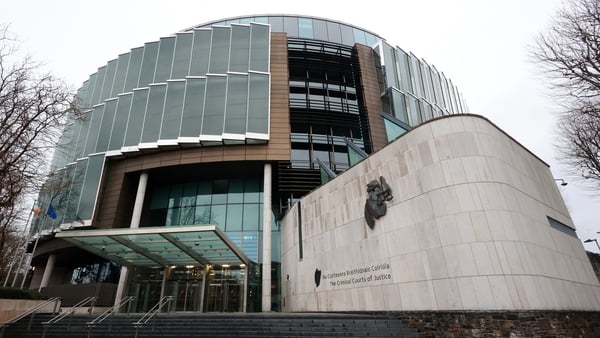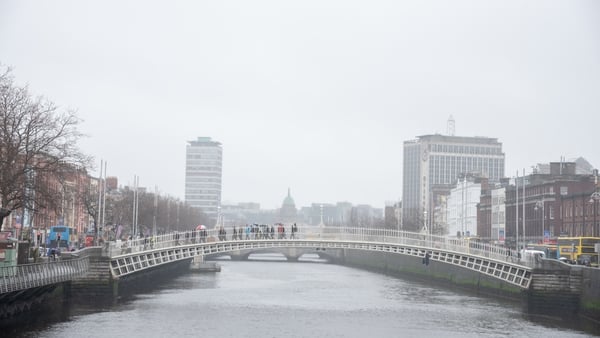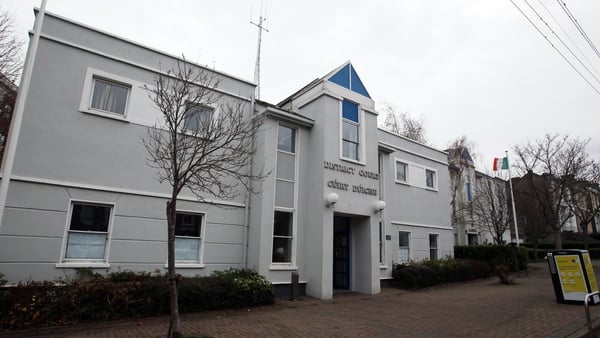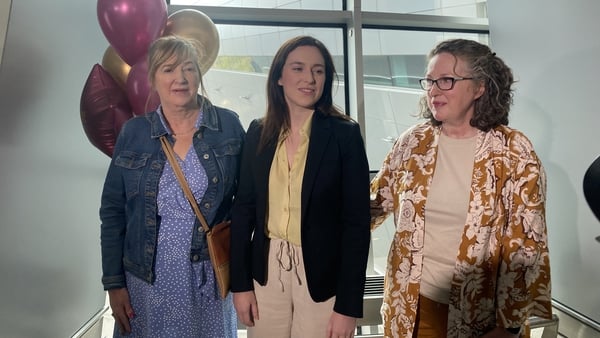The Department of Housing says it is working to update planning guidelines on short-term lettings, which it hopes will provide clarity over the necessary planning permissions and exemption requirements needed by property owners.
Such properties are often let out through popular online platforms including Airbnb, Expedia and Booking.com.
The Department is examining whether properties operating in rent pressure zones and those outside rent pressure zones in more rural areas should be treated differently, under the proposed 'Registration of Short-Term Tourist Letting Bill'.
This bill is being progressed by the Department of Tourism and the planning guidelines will be published on enactment of the bill.
The Department of Housing said it hoped the "guidelines will provide sufficient protection for tourism in rural areas while ensuring there are homes returned to long-term rental in areas of high demand where they are most needed".
The proposed legislation is currently being considered by the Joint Oireachtas Committee on Tourism.
The Department of Tourism said it is contact with the European Commission to find a mutually suitable date for a meeting with officials there, after a blocking decision was issued last month.
This had delayed plans for a register of short-term lets that the department planned would eventually be operated by Fáilte Ireland.
Despite hopes that new legislation in this area could have been enacted by the end of March, the EU Commission extended a "standstill period" while it considers this new law until the 22 December.
It is understood that the Commission raised concerns that the restriction of short-term lets would not be confined to urban areas where their presence in the market is more likely to drive up the cost of rent, particularly in Rent Pressure Zones.
The Department of Tourism said it is currently: "Examining all the issues raised by the Commission in its most recent communication."
It said the Department of Housing, Local Government and Heritage had also been engaging with the EU Commission on the proposed legislation, and that input will continue in the period ahead.
A spokesperson added: "Material already provided to the EU Commission included input from the Department of Housing reflecting the very challenging situation in the housing rental market necessitating the measures in the Government's housing policy 'Housing For All'."
According to the EU Commission, short-term rentals are developing fast in the EU, largely boosted by the platform economy and represent about one quarter of all tourist accommodation in the EU.

It also said the number of bookings over the first half of last year increased by 138% compared with the same period in 2021. The short-term rental market had caused issues in cities across Europe, not only in Dublin but in Paris, Venice, Barcelona and Lisbon, leading the EU Commission to call for more transparency in this market across Europe by way of a register.
The number of properties is increasing significantly across Europe and in Ireland, Social Democrats TD and Spokesperson on Housing Cian O'Callaghan claimed that there were more than 16,000 entire properties available for short-term rent on just one website, Airbnb, last month.
He called from the Minister for Tourism Catherine Martin to make sure a tourism register comes into effect without delay, to which she replied in the Dáil last month: "On 22 March 2023, the department received a communication from the EU Commission which extends that standstill period until 22 December 2023. The department is now examining the communication from the EU Commission and will engage with it and stakeholders on next steps."
A spokesperson for Airbnb said the company "continues to support the introduction of a Host register in Ireland" and hoped a "workable solution" would be "in place as soon as possible".
The statement continued: "We welcome regulation and have led our industry in proposing and championing calls for clear and simple rules - both in Ireland and across the EU. We remind Hosts to check and follow local rules, and remain committed to working with the government to support everyday Hosts and clampdown on speculators."
Dublin City Council
Dublin City Council has confirmed that it has started investigations in relation to close to 1,600 properties being offered as short-term lets since new planning legislation came into force almost four years ago.
The regulations under the Planning and Development Act 2000 were aimed at bringing properties offered on Airbnb, and other platforms used for short-term tourist lettings, in Rent Pressure Zones, back into the long-term rental market in a bid to ease the housing rental crisis.
Dublin City Council says it has since issued 1,770 statutory warning letters.
To date the majority of cases have been resolved, with the council reporting a successful resolution had been achieved in respect of approximately 1,464 cases.
These cases have now been closed following the commencement of and compliance with enforcement requirements.
However, 62 Enforcement Notices have been served relating to cases that remain under active investigation.
Six cases have been referred for S157 legal proceedings, where an enforcement notice has not been complied with.
And five cases have been struck out and resolved following the initiation of legal proceedings with Dublin City Council and one final case is due in court next month.
Dublin City Council said it could not give any further comment in relation to any ongoing court cases.
Since the 2019 legislation there has also been a fall off in the number of applications received by Dublin City Council each year for the relevant planning permission.
In 2019, 17 applications were received, of which one was granted, ten were refused, three were invalid and three were withdrawn.
In 2020, just six applications were received of which four were granted, one was refused and one was invalid.
In 2021, five applications were received with three granted and one refused.
Last year four applications were received with two refused, while the council was waiting for further information in relation to the final two.
This year four applications have been received to date with two refused and two still awaiting a decision, pending further information.
We need your consent to load this rte-player contentWe use rte-player to manage extra content that can set cookies on your device and collect data about your activity. Please review their details and accept them to load the content.Manage Preferences
Kerry
Speaking earlier on RTÉ's Today with Claire Byrne, Kerry hotelier Niall 'Botty' O'Callaghan said a softening of regulations for rural Airbnbs in tourist hotspots would be welcome.
The Kerry County Councillor added that current regulations are creating a supply and demand issue.
Councillor Byrne said from his experience most property owners are scared to go into long term letting.
Cllr Byrne highlighted the lack of beds available in Killarney because of catering to large numbers of refugees in hotel accommodation.
"We have already found out this week that 37% of bed nights are out of the system," he said.
Councillor Byrne added that there are no plans by Kerry County Council to build houses in Killarney as there is no land available.






